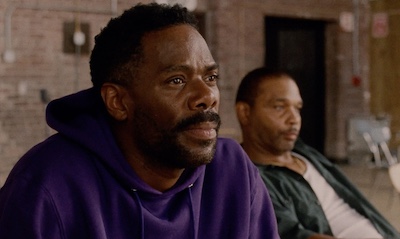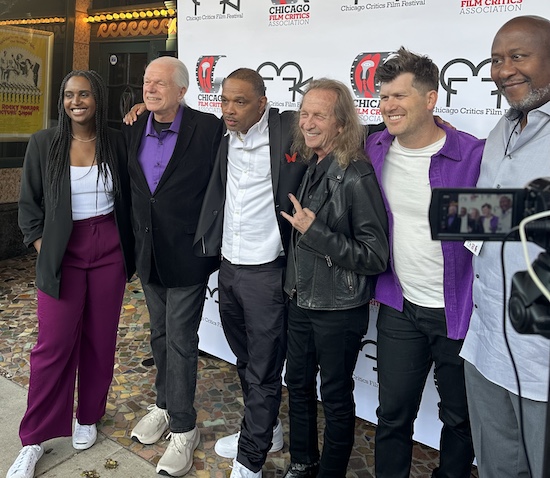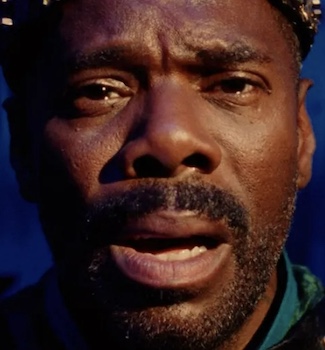
Colman Domingo executes yet another extraordinarily sensitive performance, this time as a man imprisoned for a crime he did not commit. The film shows how he and fellow inmates delve deep into their psyche in a dramatic presentation of resilience, humanity, and change when they are allowed to experience the power of art.
Several formerly incarcerated alums who participated in RTA, run by present-day director of the theater program, auditioned and have roles in this film.They include Clarence “Divine Eye” Maclin and Sean “Dino” Johnson. The real Divine G whose story gained national attention in an Esquire article, even appears in a charming scene early in the film, alongside Domingo, the actor who plays him.
Watch our Red Carpet interviews with Maclin, Johnson, Paul Raci and Director Greg Kwedar at the 2024 Chicago Critics Film Festival
Watch the Q & A with Colman Domingo at a Chicago International Film Festival preview talking about shooting this film in 18 days between working on Rustin, and The Color Purple.



Director Greg Kwedar presents this heartfelt, serious, but also humorous film he co-wrote with Clint Bentley. The story is based on the relationship between Clarence Maclin and Divine G Whitfield who both contributed to this story about prisoners who joined Buell’s RTA (Rehabilitation Through the Arts) program to give them a purpose in prison. It’s not meant to train actors, but to train the inmates to be better people by improving their inter-personal skills.
They also create original theater pieces themselves as well as perform Shakespeare, with scenery, costumes and all. Clarence “Divine Eye” Maclin relishes memorizing 44 pages from the Bard because he loves it so much. Buell’s RTA has had amazing success. The recidivism rate for those who go back to prison after being in this program has gone from 60%, down to a mere 3%.
Domingo plays an inmate who is fully committed to the program. Divine G helps write, direct and act, supplying support for his fellow actor-inmates. He is also totally committed to building the case he hopes will prove his innocence, painstakingly working to be exonerated by the parole board. Domingo’s performance is gut wrenching as you see the profile of a man struggling to retain his humanity any way he can.
Almost all of the performers in this film had been in the program and had an opportunity to play a version of themselves. Some had more experience than others, so it all seems very real. Kwedar frequently uses static closeups to effectively get inside the characters’ heads. The Director just lets the camera roll as men audition individually. Kwedar edits them into a collage of faces and stories as they tell who they are, why they think they’re good for a role, while revealing their own personal stories. It is a compelling segment.



You see Raci (Oscar Nominated for Sound of Metal) as director Buell, a man he admires greatly. As Buell, Raci guides the men in rehearsal to help them become more at ease with their roles so they can understand and grow into the characters they play, in turn, helping them get in touch with themselves and their talent. Domingo interjects support whenever he sees them falter. There is contention, but there are also emotional breakthroughs.
Director Kwedar captures the friction, pathos, inner turmoil, but also the humor, sensitivity, trust and friendship of these characters. This is an incredibly moving film about those who made mistakes but learn how to use art as a way to heal.
A24 1 Hour 45 Minutes R









